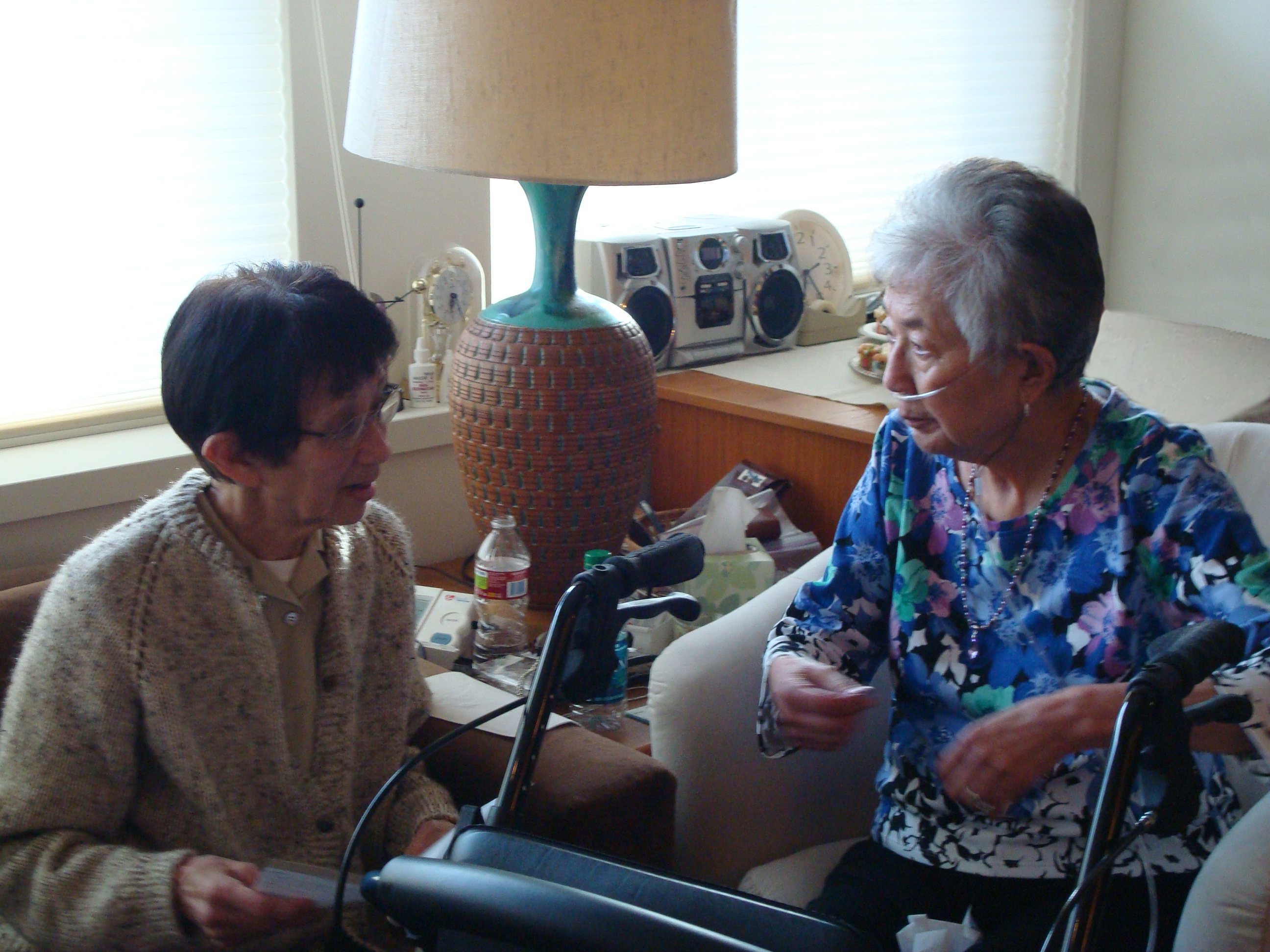AARP Hearing Center


By George Robertson, long-term care ombudsman
Are you looking for a way to use your talents that you've acquired over the years working as a teacher, nurse, reporter, secretary or any of those other hundreds of jobs that have been challenging and rewarding?
Then why not consider volunteering to help people who live in nursing homes and assisted living facilities?
I've had the wonderful opportunity to be one of those volunteers for the past 10 years and I can tell you that it has given me a renewed sense of purpose in life after retiring after working more than 40 years as a reporter and finally as editor of my own newspaper.
Ironically, I got the idea of volunteering by reading a story about the Oregon Long-Term Care Ombudsman program. The story explained why more volunteers were desperately needed to serve as advocates for some of society's most vulnerable people -- senior citizens and the disabled.
I thought that joining the program would be something that would give me a new challenge while also helping others. Thankfully, it has been both challenging and very rewarding.
I still remember being interviewed before being accepted into the program. It was a little like a job interview and I was a lot of questions to make sure I could be a suitable candidate. After the interview I was notified that the next training program would start in two weeks.
The training sessions -- spread out over several weeks to give candidates time for their other activities -- covered a lot of ground. I learned about state and federal regulations for nursing homes and assisted living centers and learned that the role of an ombudsman is to help residents get the best care possible that they deserve.
As an advocate for residents, I have listened to many complaints about everything from the quality of the food -- the No. 1 issue in many facilities -- to problems with employees who don't seem to care or are trying to take care of too many residents because of staff shortages.
In an effort to not just listen to complaints I've tried to find out about activities that residents are enjoying and compliment staff who go the extra mile. I think most of the staff sincerely want to do a good job but are challenged because most facilities operate on a business model that requires them to make a substantial profit on their investment. Low pay for these important jobs also leads to rapid turnover in many facilities and that, in turn, creates problems for residents who must deal with staff who don't know how to provide adequate care.
Since I started volunteering I've learned there are about 45,000 residents living in Oregon nursing homes, assisted living facilities and adult foster homes. And that number keeps growing as more and more facilities are being built to prepare for the expected surge from the Baby Boomers.
Of course, that means the need for volunteers -- called certified ombudsmen -- will only increase.
Why would anyone choose to spend some of their precious time taking on the challenge? I can only answer for myself. When I see that I have been able to help a resident -- perhaps a 75-year-old lady who has no visitors or anyone looking after her interests I feel like I have achieved something special. I know it's good for my heart and my overall health.
I sometimes joke with residents who thank me helping them that I get more out of being an ombudsman than I give them. They usually smile when I say that and then tell me again how grateful they are to have an ombudsman.
I'm happy to report that over the years I have become friends with many residents. While sometimes it has taken a while to build up a trust I think they know I am in their corner and will do whatever I can to deal with a problem. I have often accompanied residents who need to talk to staff or another resident and acted as a mediator to resolve issues. Some times it just takes listening to both sides of a story and helping each side understand what the problem actually is all about.
Over the years I have learned to tell residents that I don't have a "magic wand" to wave away all their concerns but I will do my best to make sure they are receiving the best care and are being treated respectfully.
I hope more Oregonians will decide to volunteer as an ombudsman.
If you would like to learn more about volunteering as a Certified Ombudsman in Oregon, call 800-522-2602, direct 971-600-6149, natascha.cronin@oregon.gov or visit the website at www.oltco.org.































































